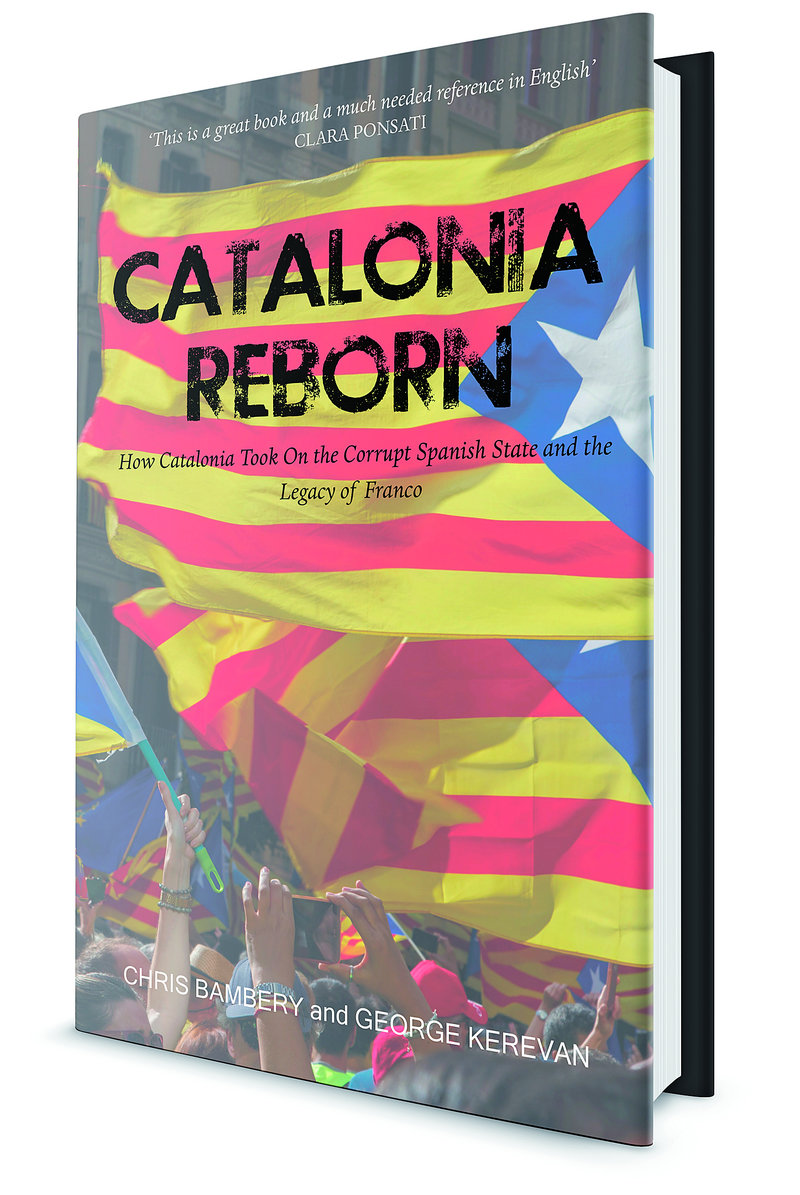Kleptomaniac state
October 1, 2017, the General Strike against repression two days later, the Declaration of Independence and the December elections organised by Rajoy after imposing Direct Rule are the vivid contents of Catalonia Reborn
The book’s great achievement is to connect these recent events with history and a materialist analysis of the class and national forces in play. Its style is direct and urgent, as befits a book on rapid-moving contemporary events, but it is not superficial. Sometimes, outside eyes can contribute a rounder, fuller picture, especially (as in this case) eyes from Scotland, whose struggle is entwined with Catalonia’s.
The State’s Fear
Bambery and Kerevan are particularly good on the 20th-century history of the Spanish state. Francesc Cambó and the Lliga Regionalista sought a certain degree of Catalan autonomy, but they feared the anarchists more than Franco, so sided with the latter, who would defend their profits. The dictatorship organised not only terrible executions, imprisonments, poverty and theft, but constantly sought to break the power of Catalan capital. The shocking flight of companies to register outside Catalonia after the Declaration of Independence was an echo of the dictatorship’s shift of Catalan companies to Madrid in the 1940s and ’50s.
The authors follow through to the Transition and modern democracy. They argue that Spain, though a major capitalist state integrated into the EU, has a number of particular democratic deficits: the failure to break with Francoist economic power and political culture in the Transition, a monarchy appointed by the Dictator, no cleansing of torturers and fascists from the state apparatus, and a very small ruling oligarchy controlling banks and major companies. PP and PSOE politicians, encouraged by ’revolving doors’, have been happy to function as lackeys of this oligarchy.
Corruption is integral to how this system works. Catalonia Reborn contains several fascinating sketches on the Franco family, Aznar’s friend the ill-fated Miguel Blesa and Josep Piqué (remember him? Ex-maoist and ’liberal’ PP leader), among others.
Another strong feature of the book is its chapter on the dirty war in the Basque Country. Well-documented, the authors show the response of Spanish governments to both ETA and the much wider movement for Basque independence. The state sought unconditional surrender, but not negotiations. Why?
“…This narrow political attitude... represents the fears of... the Spanish oligarchy that any retreat from the 1978 constitutional settlement will open the floodgates to reform and sweep away their privileges.” The same fear governs the state’s reaction to today’s Catalan movement.
Negotiation or Mobilisation
October 27’s Declaration of Independence was not a serious attempt to organise an independent state. There was no leadership after the Declaration, symbolised by the absence of a Macià-type balcony speech. What might have happened in the days following the Declaration? The consellers/eres could have attended their offices to organise the new state. Puigdemont could have called on the mass movement to assemble at the conselleries and the Generalitat to defend the Republic. Instead, the movement was left rudderless.
This was avowedly to avoid bloodshed, which is highly creditable. However, it also reveals a political weakness: relying on negotiations, whether with the Spanish Government or the EU, instead of mobilising the mass movement. This book shows how it is the pressure from below for independence and social justice that has intervened time and again to push forward the process.
The book has an unfortunately large number of typos and spelling mistakes, reflection probably of its immediacy. Despite this irritation to a pedant like me, Catalonia Reborn is both bold and refreshing. It attempts to sidestep no controversies and it proposes a strategy for both the Scottish and Catalan independence movements.
book review




